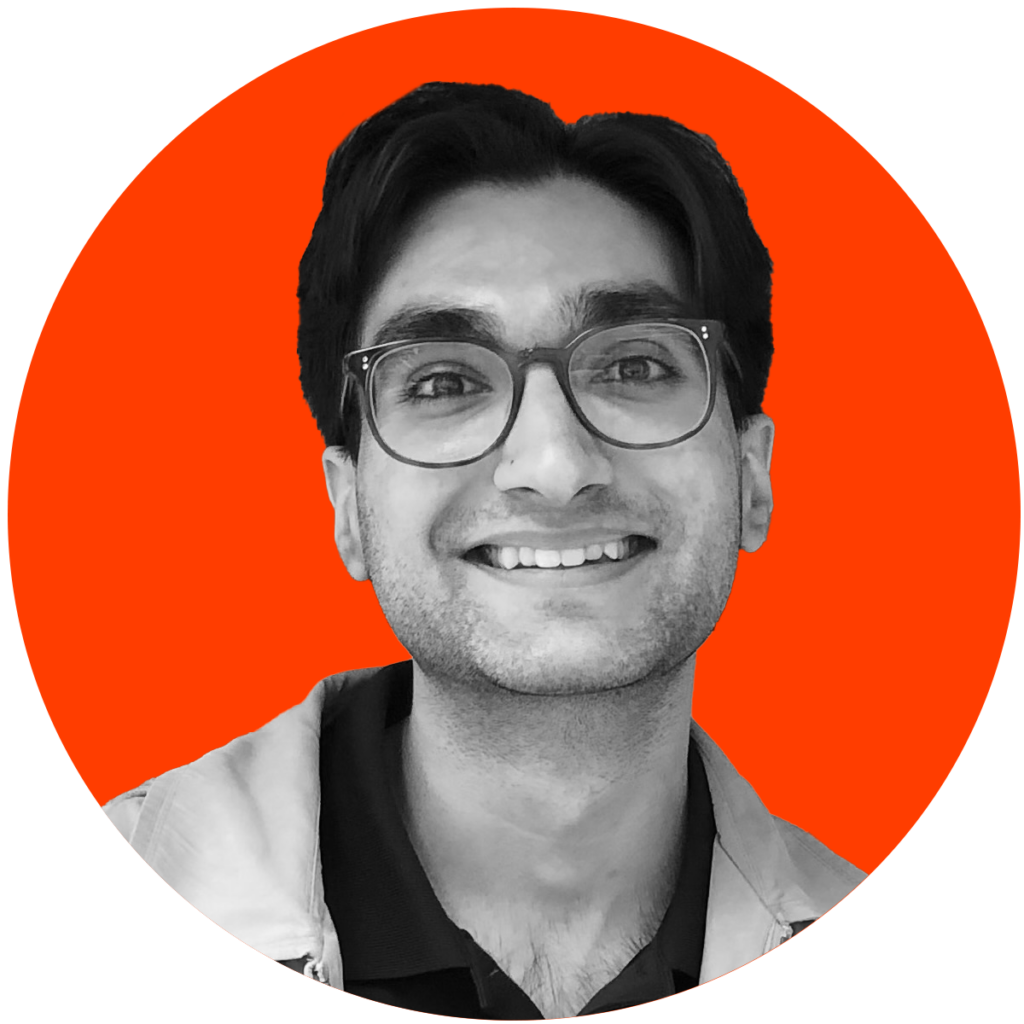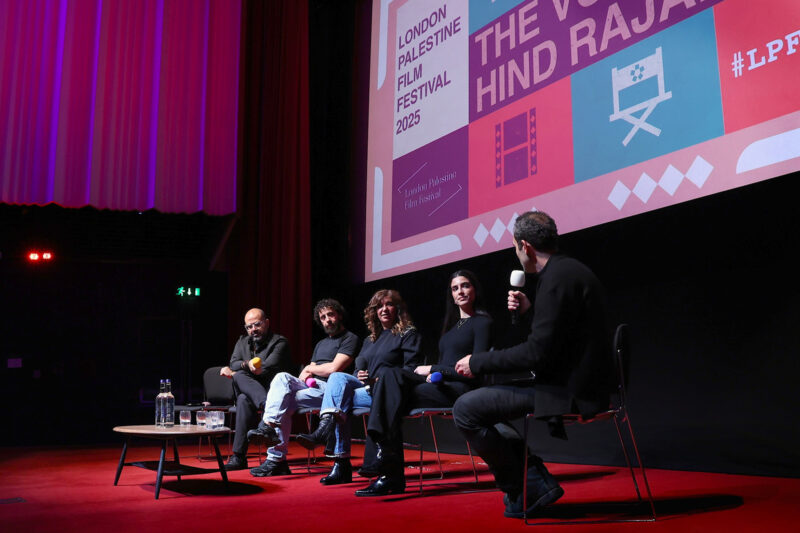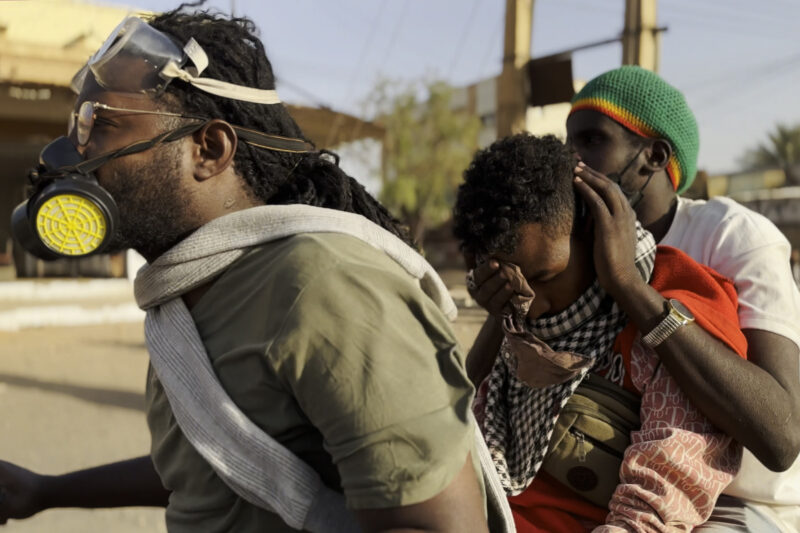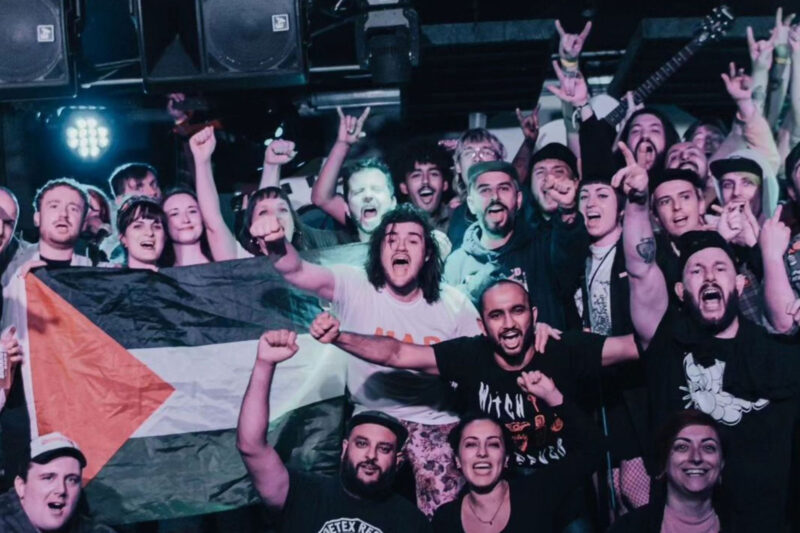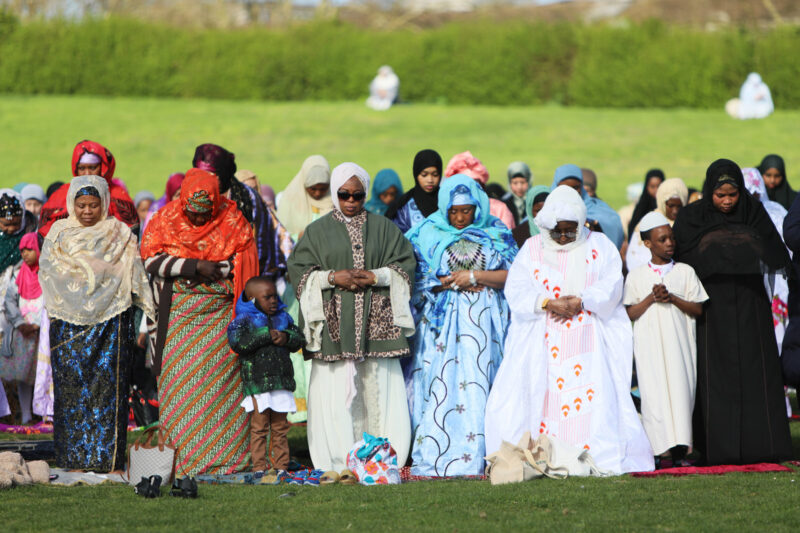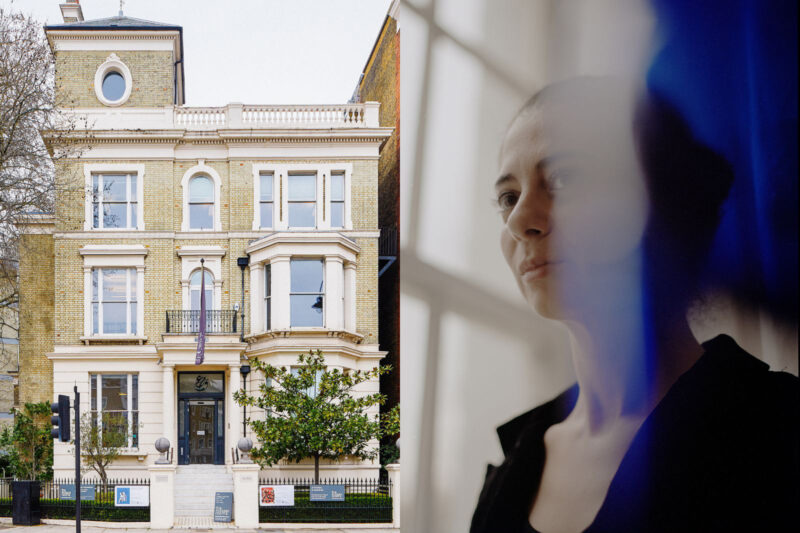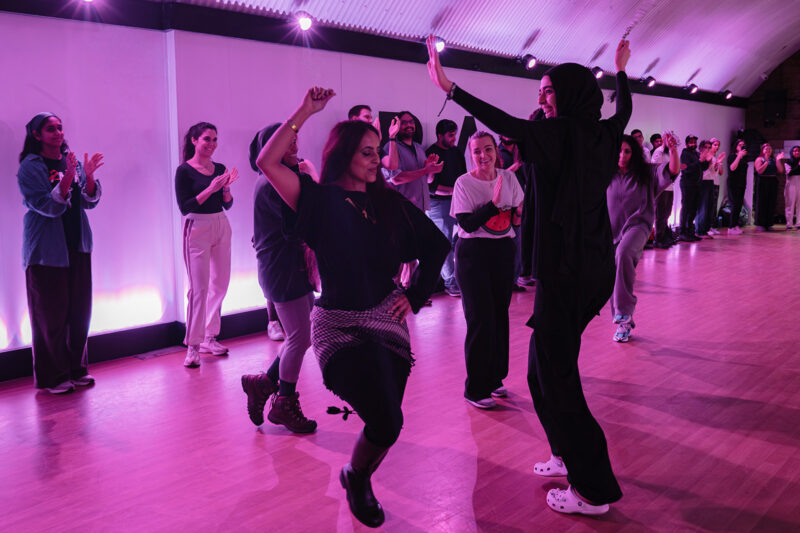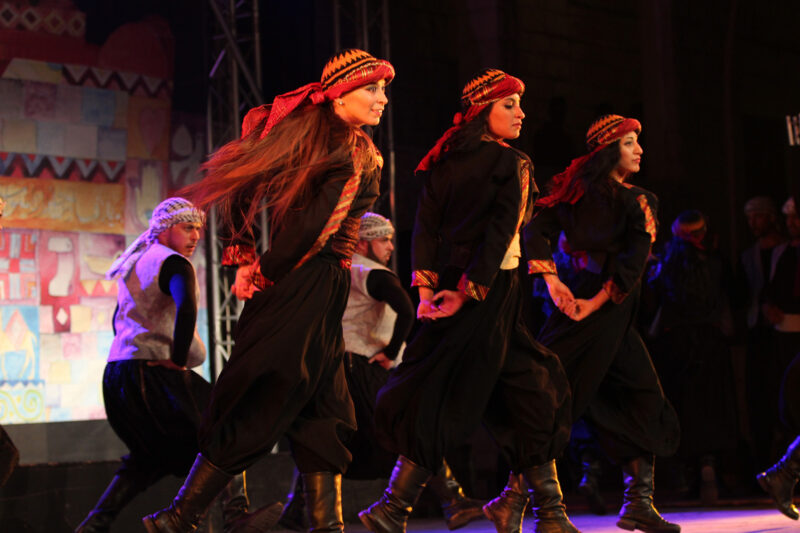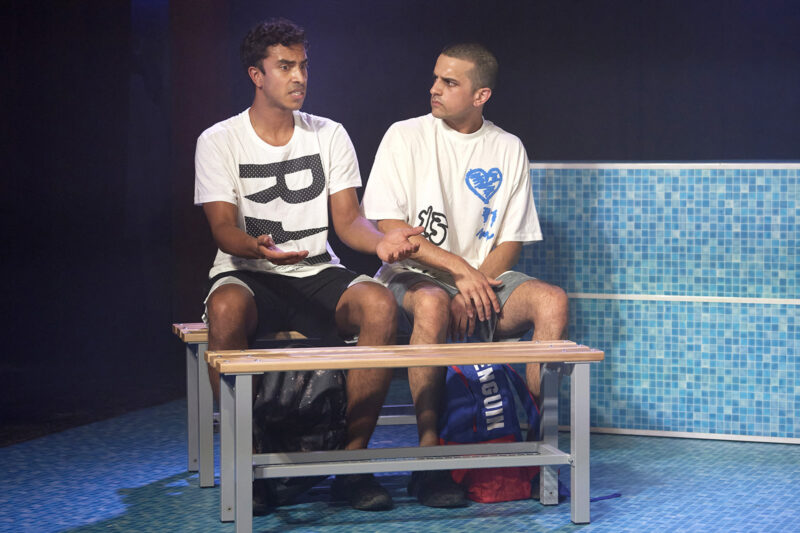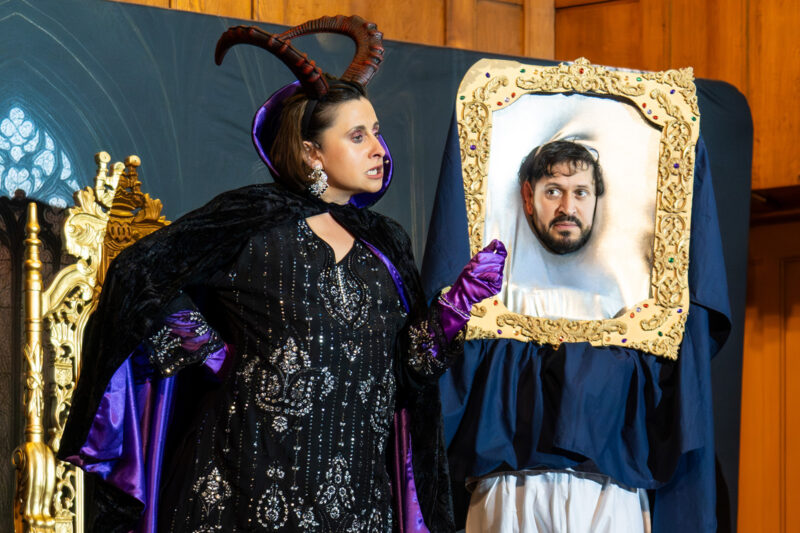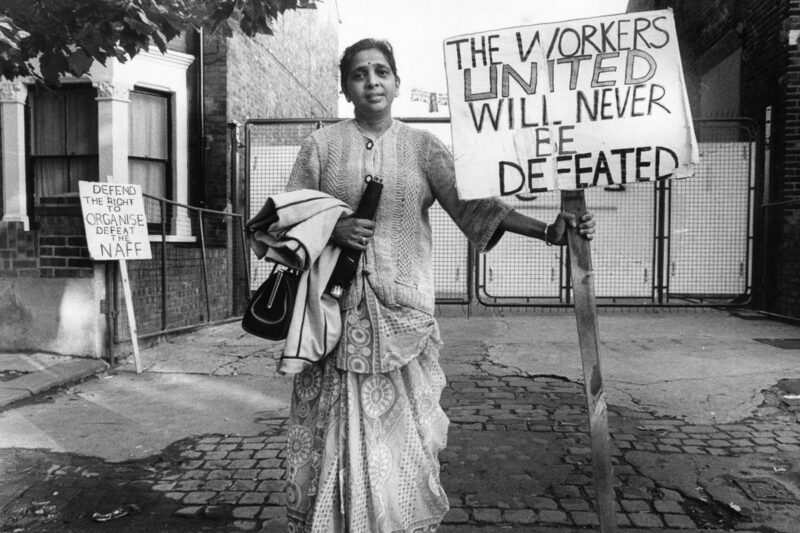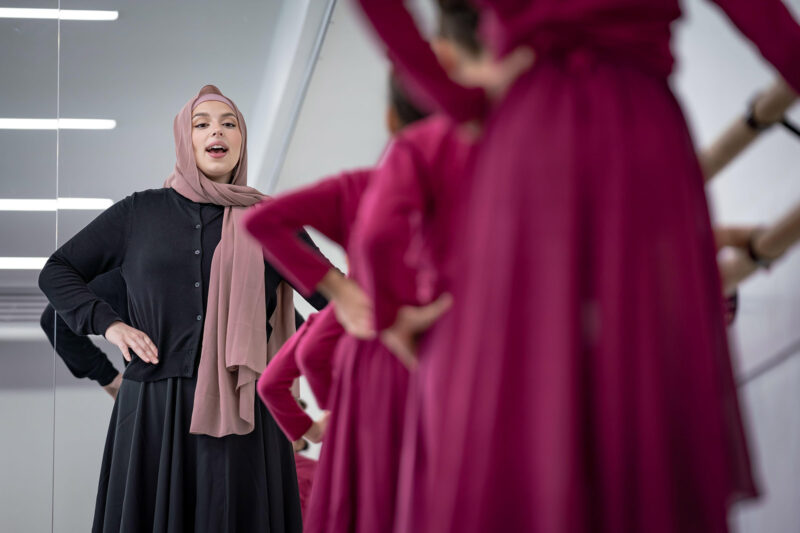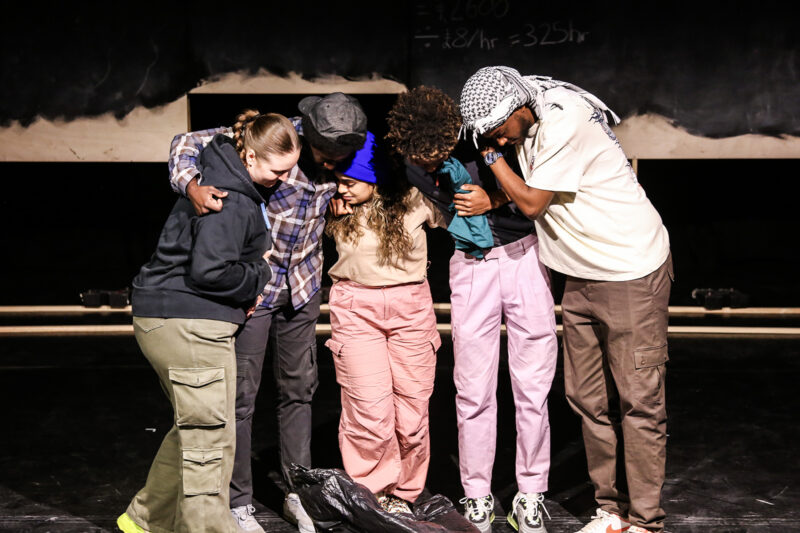‘It is our right to make our art’ — the creators of acclaimed show Milk ahead of its UK premiere
Bashar Murkus and Khulood Basel on their visual performance at Shubbak festival, the largest Palestinian theatre production to be staged in Britain in decades
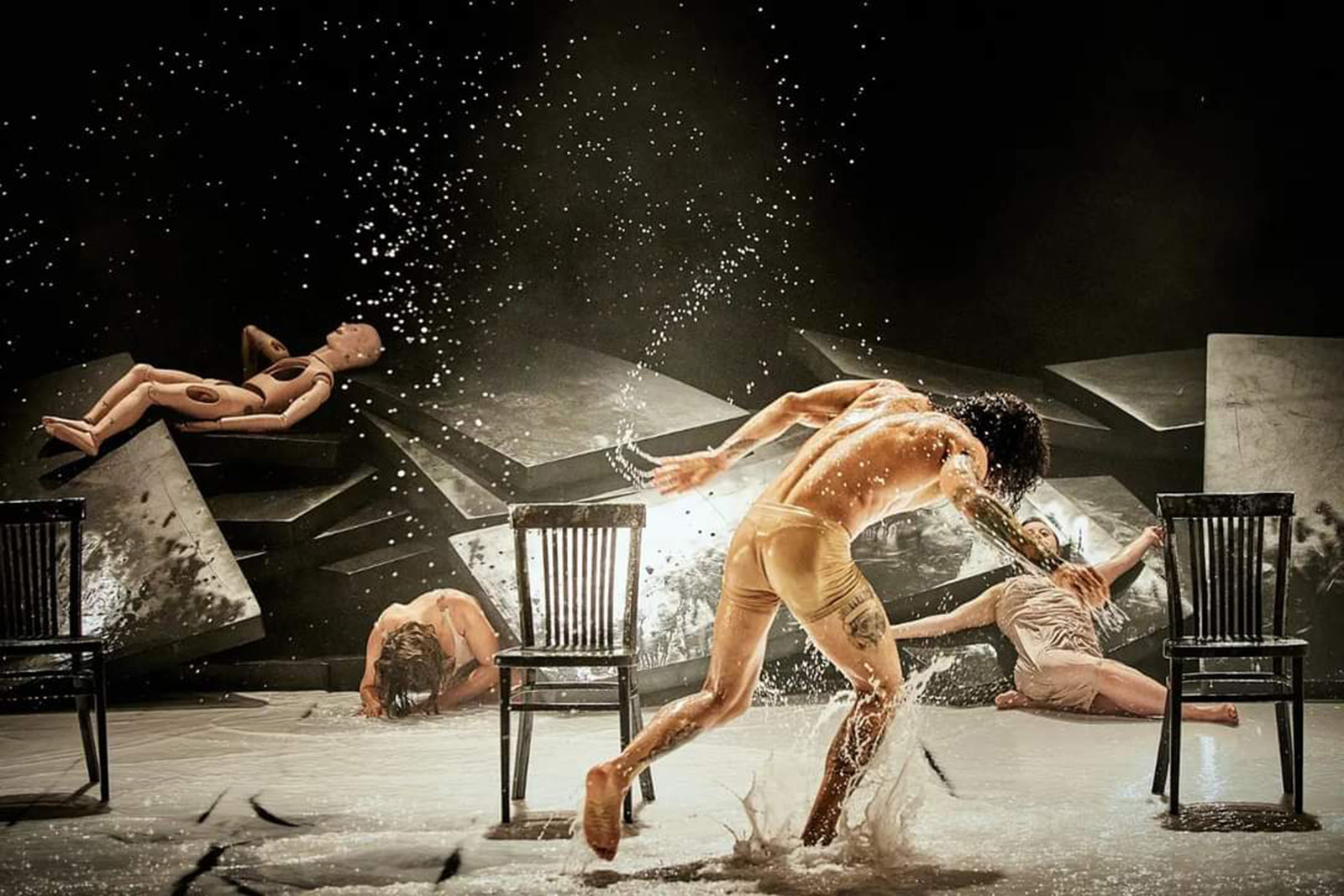
As university students in Haifa more than a decade ago, Bashar Murkus and Khulood Basel formed an instant connection over a shared love of theatre. Their friendship would turn into an artists’ collective named Khashabi and in 2015 an acclaimed independent theatre showcasing the work of Palestinian artists.
“On a day-to-day basis, it’s the both of us working together as if we are seven or eight people,” Basel, a producer, explains. “We are writing and putting ourselves in good artistic conditions, where we think all the time about the important things we want to say.”
One of Khashabi’s productions, Milk, is heading to London’s Southbank Centre on 24 and 25 May, as part of the Shubbak festival. The play, which premiered in 2022 and was shown in the Venice Biennale in 2023, is the largest Palestinian theatre production to be staged in the UK in more than 25 years. It is performed without words, relying entirely on the audience’s sensorial experience of the movement and sound on stage.
Alia Alzougbi, Shubbak festival’s chief executive and artistic director, had been aware of Khashabi Theatre’s work for some time. “We knew they were creating artistically excellent work and we were especially gripped when we realised they were moving through this moment with a dignity that was costing them a lot,” she says.
“Milk is a real feast for the eyes. It’s also a heady interrogation of the state of the world. That such beautiful portraits are created out of a macabre subject is exactly the kind of surprising combination that makes Bashar and Khulood ones to watch.”
The production follows an ensemble of five actors who collectively embody the figure of a mother in grief and mourning. One actor takes on the role of a child, birthed on stage atop foam mats that call to mind mass graves, the rubble after destruction, or the earth beneath which milk — a life-giving substance — flows.
“We started by asking ourselves how wars or political disasters transform women into a material of tragedy,” says writer and director Murkus. His conceptualisation of the production began as sketches on paper that were translated into physical movements during workshops. The visual nature of the performance is rooted in the understanding that words would fall short of what the audience is witnessing. Murkus describes the characters in the play as having “lost their mouths”.
“We found a way to put on stage characters who are not able to speak anymore, who are beyond language,” he says.

A score by Raymond Haddad offers a soundscape to the six bodies. “The music in Milk is a real character, adding a new level to what we are witnessing,” says Murkus.
Murkus and Basel’s motivation has always been to draw on theatre to probe larger questions about humanity, tragedy and conflict. Themes of motherhood and grief necessitated a cast that could represent the rawness of these states of being. “It is not about a singular loss, but about collective loss,” Murkus explains.
Much of the pair’s inspiration comes from their own context. For Murkus, it is partly the aesthetics of old Palestinian theatre, songs and the stories of his grandmother — elements that form part of the DNA of each new creation.
“There’s no formal theatre industry in Palestine. So we turn inward,” Basel adds. “We are living in a place that is being changed so dramatically, and understanding this from the perspective of a human being, family member, artist, politically-engaged person — it fills you with a lot of material.”
Khashabi Theatre is located in Haifa’s Wadi Salib neighborhood, within which the homes and buildings of the original Palestinian residents were confiscated under an absentee property law in the aftermath of the 1948 Nakba.
The space, which Basel describes as a “beautiful, historic building”, symbolises a return of a kind, to Palestinian ownership. She says those 330 square meters are a reclaimed fragment of the city within a landscape of dispossession. “Haifa is our city. From the outset, we refused to accept any Israeli funding — even before we secured the building — because we refused to be complicit in the colonial system,” Basel explains.
The precarity of operating as Palestinian artists under occupation has often meant navigating a challenging terrain. In 2014, prior to the inauguration of Khashabi’s space, Murkus staged Parallel Time, a play exposing the condition of Palestinian political prisoners in Israeli jails, at the Al-Midan theatre in Haifa. It resulted in the theatre’s brief closure due to budget cuts from the city’s municipality and the ministry of culture, after a backlash from the Israeli right wing.
Khashabi’s financial independence from the Israeli state is an artistic and political choice. “It means that we can take ourselves outside of the system and to make the space for freedom as wide as possible,” Murkus says. “As Palestinian artists under this colonisation, it is our right to speak our narrative, and to make our art.”
Basel adds: “Part of what Israel works on is an erasure of our history, our narrative, our language, our cities, our very being. We try to work against this with the tools that we know best and love. We try to be part of cultural making as an act of refusal to the status quo.”
Milk is being staged at the Southbank Centre as part of the 2025 Shubbak festival on 24 and 25 May.
 Newsletter
Newsletter

